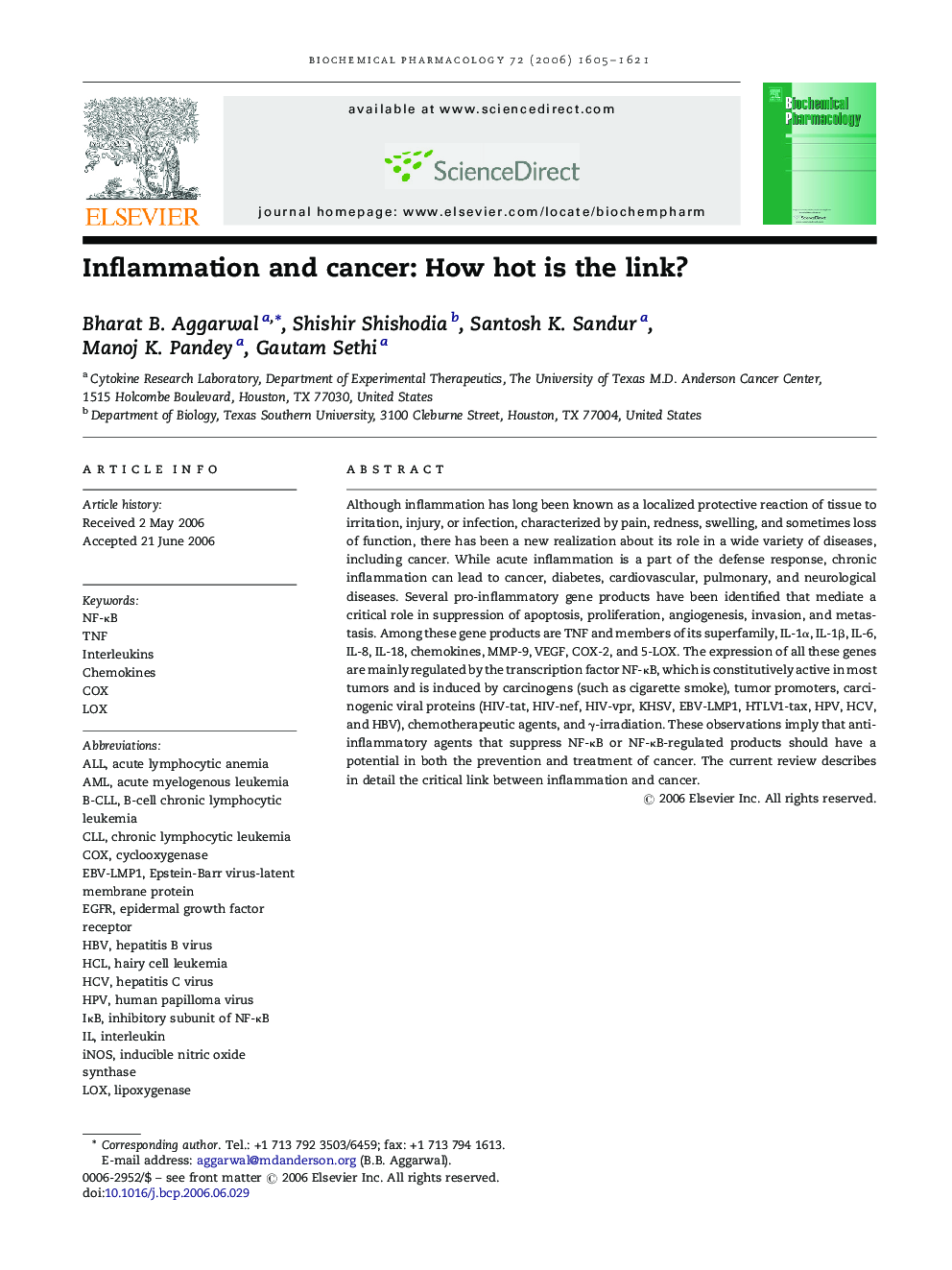| Article ID | Journal | Published Year | Pages | File Type |
|---|---|---|---|---|
| 2515101 | Biochemical Pharmacology | 2006 | 17 Pages |
Although inflammation has long been known as a localized protective reaction of tissue to irritation, injury, or infection, characterized by pain, redness, swelling, and sometimes loss of function, there has been a new realization about its role in a wide variety of diseases, including cancer. While acute inflammation is a part of the defense response, chronic inflammation can lead to cancer, diabetes, cardiovascular, pulmonary, and neurological diseases. Several pro-inflammatory gene products have been identified that mediate a critical role in suppression of apoptosis, proliferation, angiogenesis, invasion, and metastasis. Among these gene products are TNF and members of its superfamily, IL-1α, IL-1β, IL-6, IL-8, IL-18, chemokines, MMP-9, VEGF, COX-2, and 5-LOX. The expression of all these genes are mainly regulated by the transcription factor NF-κB, which is constitutively active in most tumors and is induced by carcinogens (such as cigarette smoke), tumor promoters, carcinogenic viral proteins (HIV-tat, HIV-nef, HIV-vpr, KHSV, EBV-LMP1, HTLV1-tax, HPV, HCV, and HBV), chemotherapeutic agents, and γ-irradiation. These observations imply that anti-inflammatory agents that suppress NF-κB or NF-κB-regulated products should have a potential in both the prevention and treatment of cancer. The current review describes in detail the critical link between inflammation and cancer.
